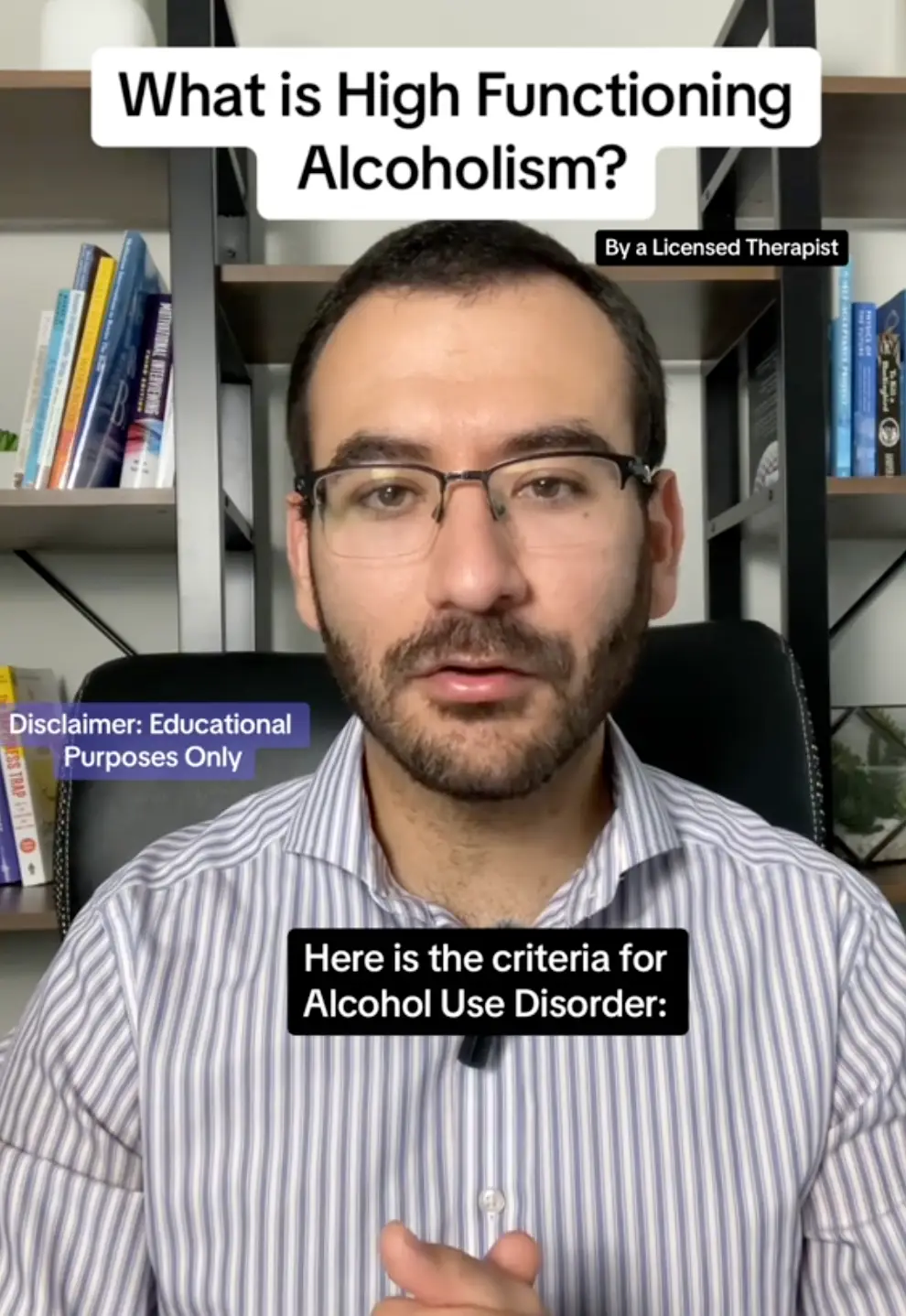
A psychological expert has revealed the eight warning signs that could reveal someone to be a 'high-functioning alcoholic'.
It's easy to think that you're eating too much junk food or drinking too much alcohol, and set up a plan to combat the issue, but some people can't stop no matter how hard they may try or want to.
This is called alcoholism and according to the latest study from GOV.UK, 608,416 adults across the UK are affected by the problem.
It's something that can derail someone's life, but according to health experts, it is also possible to be an alcoholic and a contributing member of society.
Advert

Licensed therapist and mental health expert Jeffrey Meltzer, known as TherapyToThePoint on his social media accounts, has shared the eight things that a 'high functioning alcoholic' does, revealing what you should look out for to identify someone that might be one.
What is a High Functioning Alcoholic?
The therapist explained to his 258,000 TikTok followers: "Someone who has high functioning alcoholism maintains jobs, relationships and responsibilities, while struggling with Alcohol Use Disorder (AUD)."
He highlighted that high functioning means 'performing well in various aspects of life' while having an alcohol addiction.
Meltzer delved into the DSM 5, which categorises the disorder into mild, moderate and severe depending on different behaviours.
Mild cases are when you qualify for two to three of the criteria, moderate cases are for four to five, while severe cases require meeting six of the criteria, all within a 12 month period.
"These symptoms must represent a pattern and not just isolated events," Meltzer stated.
Only eight of the 11 apply to high functioning alcoholics.
Drinking more or for longer than planned
The mental health professional highlighted: "For example, intending to have one drink, but consistently ending up having three or more drinks."
Obviously, this can happen from time to time but if you find yourself or someone else doing this consistently, it may be a wider issue.
Failing to cut down
You may have acknowledged the problem and decided to stop drinking as much, but if you find yourself consistently failing to stop, it could signal AUD.
Longer recovery times
Nobody likes a hangover, but if you're taking longer amounts of time to fully get over the effects of drinking the day after, it could be a sign of your body struggling to cope with the fallout.
Cravings
They always say to get something greasy down your gob the day after heavy drinking, but craving unhealthy food constantly is never a good sign, as snacks and fast food bites often have little nutritional value.
Drinking in hazardous situations
If someone is using alcohol in situations where it can potentially become 'physically hazardous', such as driving or while doing activities such as cooking, it could signal AUD and being a high-functional alcoholic.
Knowingly continuing to drink
The therapist highlighted that there is a problem if you are: "Continuing to drink despite knowing that you have a recurring, physical, or psychological problem that is exacerbated by alcohol."

Developing a tolerance to drinking
He explained that if you're 'needing more to achieve the same effect', it is a sign of of your body suppressing its normal responses to toxins, which in the long-term, is detrimental to your health.
Withdrawal symptoms
Meltzer further explained: "Experiencing withdrawal symptoms when you're not drinking or drinking to avoid these symptoms."
This might be the biggest tell-tale sign of having AUD, and if you're able to get through life regardless, it could mean that you're a high-functioning alcoholic.
Topics: Alcohol, Health, Lifestyle, Mental Health, TikTok